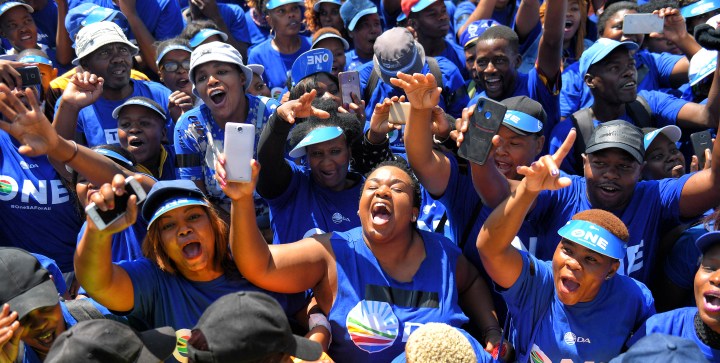RACE & POLICY
DA federal council backs race-based empowerment but confusion remains

The DA federal council this weekend confirmed that its empowerment and redress policies will for the time being be linked to race, which was quickly criticised by the Institute of Race Relations. It’s unclear, however, just what those policies are.
Frans Cronje issued a warning to the DA on Monday. The Institute of Race Relations (IRR) chief executive accused the party of playing by the ANC’s rules, pandering to populism and stifling internal debate.
He said DA leader Mmusi Maimane lacks “intellectual clarity and moral authority”, which has divided the party and will ultimately see it descend into authoritarianism.
“When a party cannot even debate an issue, that is when political death sets in,” said Cronje ominously in a statement. “It starts internally, closing minds, before it spreads externally. Eventually, all that is left is an empty, hollow shell.”
The IRR was incensed by the DA federal council’s decision over the weekend to maintain race as a proxy for disadvantage in its economic empowerment and redress policies. The debate over whether redress should be race-based has a long history in the DA with its various stripes of liberals pushing their own view on the party’s core values.
On broad-based black economic empowerment (BBBEE), Maimane said on Sunday that the party was clear that “we believe race is a proxy for disadvantage and an accurate reflection of who is still excluded from opportunity”. He rejected the country’s existing policy that he said has only enriched those close to the ANC.
Cronje said the DA could lose liberal voters by essentially adopting the ANC’s policy but claiming it could implement it more effectively. He claimed race does not determine disadvantage because the country has a small black elite and that it appeared the DA federal council failed to discuss other empowerment models.
Maimane’s announcement comes after the party’s policy head Gwen Ngwenya resigned in January, partly due to the fallout over the DA’s public spat over its BBBEE policy. Ngwenya was formerly employed by the IRR. In August, the DA listed the IRR’s proposed empowerment policy as one of four possible models it might pursue.
DA national spokesperson Solly Malatsi on Monday said the party recognises that historical injustice is tied to race and over time it wants to work towards a situation where race no longer defines who is disadvantaged.
He rejected the IRR’s criticism and said he wouldn’t stoop to Cronje’s name-calling. He said members of the federal council were united behind the policy after it was debated.
But, with less than three months to go before the elections, the DA has not yet released its BBBEE policy. It has only said disadvantage should be tied to race and that it should be “truly broad-based” and not for the elite. Malatsi said the policy would be announced at the party’s election manifesto launch on 23 February in Johannesburg.
Independent political analyst Daniel Silke said Sunday’s announcement was “very confusing”.
“The position of the DA in the public eye is confused,” he said. “The DA needs an unambiguous, clear policy in one way or another on how it considers race in South Africa and its relation to BEE.”
Silke said the DA’s policy was stuck between the views of its “founding fathers” and those trying to appeal to “voters it hopes to attract”, but had not been sufficiently articulated, nor differentiated from the ANC’s policy, to appeal to either its traditional white base or the black voters it needs to grow.
“It’s a policy that really should have been articulated in serious policy over the last year,” said Silke.
“It’s going to try to be everything to everybody.”
Professor Somadoda Fikeni from Unisa said the ANC and EFF have empowerment policies clearly tied to race and the DA’s vacillation and uncertainty would not appeal to voters on either side of its diverse constituency.
Fikeni said that while the party retains race as a metric for disadvantage, it should have clear indicators as to when and how it can move away from race towards other metrics of who is considered disadvantaged and deserving of empowerment. DM



















 Become an Insider
Become an Insider